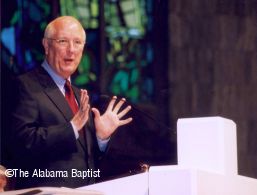For the past few years, some people have dreaded the arrival of this week. The new century, what most people call the beginning of the new millennium, would be filled with chaos, they predicted. Forecasts of destruction bordered on the apocalyptic. Some people hoarded supplies because they were certain society as we know it would cease to exist.
Well the calendar turned to the year 2000 last Saturday, and we are still here. Society continues to function, even if it hiccupped a time or two in the process. Adjustments to technology always take time, and there is no way to escape plain human error. But the bottom line is that life goes on pretty much as it did before the calendar signaled a new year, a new century, a new millennium.
But the successful transition from 1999 to the year 2000 will not end the uncertainty about life. The economy will continue to go up and down. Some people will find jobs. Some people will lose jobs. Illness and disease will attack some we love while medical science makes additional strides in overcoming evidences of creation gone awry.
People will be born, and people will die. Some will marry, some will divorce. Some will graduate, some will drop out. Some will reach the zenith of their personal mountain. Some will fall down their mountain’s slopes caught in an avalanche of bad choices. Changes will help, changes will hurt; but change will come.
The dawning of the new millennium may have exaggerated the natural uncertainty about life, but it did not create the apprehension. Nor will the passing of Jan. 1, 2000, eliminate such anxiety.
God offers guidance about how to live in the midst of change and uncertainty. One of the things God tells us to do is to “hide His word in our hearts.” Of course, the Living Word of God is none other than Jesus Christ. Everyone needs to have Jesus Christ, and anyone can have a personal relationship with Him by believing in Him as personal Savior and Lord.
But the instruction of the psalmist assumes a relationship with God. The reference here is to the Bible, God’s written Word. It is the Bible that leads one to Jesus Christ as it tells of God’s love. The Bible directs the believer in daily life. It is like a light on a dark path. The Bible tells of God’s care and provisions for His children.
“Heaven and earth will pass away,” says the Lord. “But my Word will last forever.” Holding on to that which endures is one way to face the uncertainty of life.
Another way to face uncertainty is by focusing on God’s love. God loved us even when we did not love Him. He loved us “while we were yet sinners,” the apostle Paul wrote. God loved us so much Jesus died on Calvary’s cross for us. God loves us so much He offers us forgiveness of sin.
God’s love is forever. Scripture says nothing can separate us from the love of God.
Because God has first loved us, we are able to love God in return. We are challenged to love God with all our heart, soul, mind and strength and to love our neighbor as ourselves. Love is never a selfish emotion that only takes. God’s love overflows from us to others. Ultimately, God’s love is returned to Him in worship and praise. It is demonstrated in faithful obedience before Him.
Recognizing the presence of God is another way to face uncertainty. In life’s ups an downs, amidst life’s joys and pains, God promises to be a “very present help.” God is present through His Holy Spirit. Jesus promised He would be “with you always, even to the end of the ages.” He keeps His promises through the Holy Spirit. The Spirit comforts us in times of needs. He convicts us when we wander from the paths of righteousness. He guides us through all life’s circumstances.
To have God’s presence is to have God’s power. That means uncertainties of human experience can leave us “hard pressed on every side,” but they cannot crush us. We may be perplexed at times but we are never in despair as those having no hope. When we fell persecuted, we know we are not alone. God is with us. Even when life seems to have defeated us, we are not destroyed. The all-surpassing power of God is ours through His presence. That is enough.
Clinging to the hope god offers is also important when faced with uncertainty. That hope covers every aspect of life. God does not promise “heath and wealth” as some teach. He does promise “life abundant.” That does not mean prosperity. It does mean a life filled up with purpose and meaning. The reward will be to our Savior say, “Well done thou good and faithful servant.”
God’s hope also points toward the eternal. God promises the believer an eternal home in His presence. The uncertainties of human existence will be no more. There will be no more tears, no more sorrow, no more pain, and no more death. We will be with god forever and ever and ever. That, too, is the Christian’s hope.
The human experience is filled with uncertainties and anxiety. That will not change. But the one who remembers the constancies god provides will never be overcome by such apprehensions. Instead, the Christian will know the peace of go d that rises above life’s circumstances because it is bases on the certainties of our Lord.




Share with others: